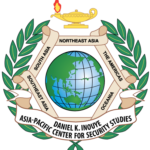This article asks the question “Can we bring religious faiths and beliefs to bear in our strategic competition with our competitors?”
Excerpt
We speak often of a values-based approach to strategic competition. In so doing, we usually operate within a mental frame that privileges familiar political and economic values such as those associated with our democratic political systems and practices, and our liberal market-led approaches to economic organization. Less often do we draw attention to the place of religious faiths and beliefs within our value systems. In a context of strategic competition, this omission potentially denies us an opportunity to more strongly differentiate and distinguish ourselves from competitor regimes. More, we may be overlooking potentially productive avenues to strengthen relationships with our security partners.
Published: October 14, 2020
Category: Perspectives
Volume: 21 - 2020
Author: Alfred Oehlers






I’m very pleased to see religious messaging and engagement being discussed and considered at APCSS. I agree that out of our nation’s historical experience we do have positive and useful religious and society messaging well worth bringing into Defense engagement. And a better understanding of those aspects of host nations’ religious beliefs that support our shared values, and those that oppose them is helpful to commanders at all levels. While certainly, US forces always should approach religions with sensitivity and respect. But doing that doesn’t mean we should shy away from religious engagement.
Aloha Richard! Thank you for your insightful comment. I am very encouraged by it. Please do stay in touch. There’s a long road to travel on this initiative – within DoD, but also, with allies and partners. Look forward to a continuing dialogue!
Your work here brings attention to an interesting strategic domain: the moral and cultural dimensions that shape trust, identity, and resilience in our partnerships. I raise these reflections not in opposition, but in shared concern for strategic effectiveness.
That said, I find myself wrestling with how this framing would resonate in our current information environment. As a nation, we’ve grown increasingly assertive—at times, even punitive—about enforcing particular interpretations of our values at home, especially when dissent challenges the mainstream narrative. When this dynamic intersects with religious identity, it can undercut the very pluralism we aim to model abroad.
We must also reckon with history: U.S. theology has at times served as carte blanche for intervention. From Manifest Destiny, to the Moro Wars in the Philippines—where conquest was framed as moral and civilizational—to Cold War-era entanglements and beyond, faith was in many of these cases not a bridge; it was a justification.
While I personally identify as atheist and agnostic, I recognize the immense social and cultural power of faith communities. I support any effort that seeks to build trust across belief systems, particularly when it is guided by humility, transparency, and mutual respect. If I may offer one shift in emphasis: what resonated most deeply in your article was not faith in the doctrinal sense, but spirituality in the shared human sense—our search for awe, reverence, and connection.
In my view, spirituality offers a more inclusive and strategic foundation than institutional religion. It allows space for all faiths and spaces to converge around shared values without engaging in belief systems. It is harder to accuse someone of proselytizing when the framing is around spiritual solidarity or ethical commitment, rather than religious identity.
This distinction may be essential—mitigating much of the risk in today’s information age, where narratives travel at the speed of light. A single misstep framed around theology can be broadcast and reframed across borders in moments, potentially undoing months of careful partnership-building. The story we tell—intentionally or otherwise—matters more than ever.
This article, ‘Religion in a Values-Based Approach to Strategic Competition,’ is a truly insightful and important read. It offers a crucial perspective on how religious faiths and beliefs, often overlooked, can significantly impact strategic partnerships and competition. The discussion about integrating religious messaging with sensitivity and understanding into defense engagement is particularly valuable. It highlights a critical dimension for effective international relations. Thank you for such a thoughtful contribution!